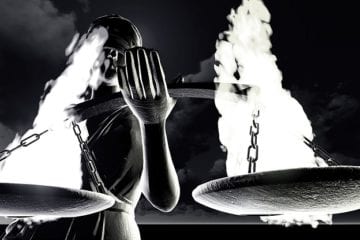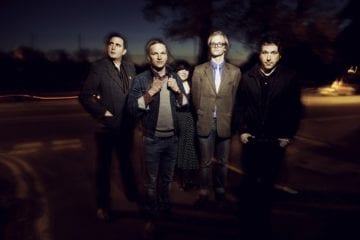- Endless source of inspiration is… Blues!
- Rejection as the path to… success!
- The Warsaw Uprising and the… Sabaton
- Transition, Mutation, Denaturation… Renaissance
- The resilience of ordinary people…
- The connection of a spark, a puppy look and a… Success!
As long as there is a will for freedom, ways to limit it will be invented. As long as people move, for many reasons, bigger walls will be built.
Few walls were able to withstand forever!
The human will to break them is always greater than the very tendency to build.
The walls that are difficult to break down are crammed with stereotypes, prejudices, and all kinds of hatred towards the different.
In the song “No Escape (from Balkan)” Dubioza Kolektiv plays around with stereotypes that people from the rest of the world, especially Western Europe, have towards the Balkans but also with a skewed perception that we have on ourselves.
The song was released in the “Happy Machine” album by Koolarrow Records in 2016.
However, it was already played since 2014 at live shows of the band.
The song has its own specific dance.
It is a “traditional” dance, devised by the band and consists of only two steps.
These are the basic steps to break down the last traces of stereotypes.
Specifically, the first step is an embrace, and the second, a high jump.
It may be repeated, but for confirmation, it is a good idea for everyone to find out on their own on their live shows.
Their goal is to convey the knowledge of this dance, around the world, and they are committed to it!
The inspiration
The song refers to a series of prejudices about people born and living in the Balkans.
As the band says:
“There is usual set of prejudices against people from Balkans – that we are loud, violent, aggressive, lazy, misogynists, hate rules and authority, beat women and listen to brass music while drinking enormous amounts of alcohol“.
As with every prejudice, this one is a romanticized and exaggerated version of reality. And it is very hard to escape generalizations and prejudices.
These stereotypes were established in the past. Austrian-Hungarians ruled over “savage” Balkan countries for a long time.
“They were the defense of superior western civilization against “inferior and savage” Balkan tribes from the East and this sense of superiority remained to this day.
In the ’60s and 70’s a lot of people from the Balkans were migrating to the West, especially Germany and Switzerland to work at “Baustelle”.
It is the German word for construction site and that became a general term used to describe work at low-paid jobs that people from Balkan could get without much qualification and education required.
Of course, in those days, people coming to the West were indeed mostly from poor, rural areas and they brought their values and customs to the “civilized” West and that was reinforcing the western vision of “primitive” Balkan people.
Wars and conflicts in the ’90s cemented this image with terrible pictures from the war that horrified Europe…”
The story
The 1990s war further strengthened this image.
The images of civil conflicts and their ferocity terrorized the lavish Europeans.
As with any war, all this also had another consequence.
“…But wars had another side effect – all of a sudden a lot of highly educated people escaped from conflict and instead of only baustelle workers you had architects, doctors, engineers, artists living in the West and this shook some of the prejudices that were built up for decades and people started to see another side of the story”, they point out.
Perhaps the most typical case is that of Gino Srdjan Yevdjevich from Kultur Shock, which was rescued by Joan Baez.
“In recent years, the rise of the right-wing fascist parties brought back narrative about “wild hordes from the East” that are coming and taking jobs away from “natives””.
This whole situation was the inspiration for the song.
The message
It is a reaction to the prejudice, that people in the West have, towards the people from the Balkans.
An insight into the internal conflict that the Balkans themselves have in their minds when they are in the West.
Essentially, the song talks about cognitive escape from this situation, rather than some geographic migration.
As the band points out, there is a bias that is identical to the truth.
“This is the position from where we wrote a song. It is partly a reaction to prejudices that people have against us but also a comment on our state of mind and conflicts we have in our heads when we are in the West.
The song talks about escaping this state of mind rather than a physical place or geographic location“.
Together with alcohol and music, it can help to communicate better between different people.
In the book “Life and the State of Alexis Zorbas” by N. Kazantzakis, it is reported that:
A dance and a bottle of vodka were enough to get together a Russian and a Greek.
Without knowing each other’s language, even managing to tell their stories.
“But one prejudice might actually be true: Balkan people have genetically predetermined tendency to like very strong alcoholic beverages. We don’t oppose this one. It is not fake news”.
Dubioza Kolektiv







